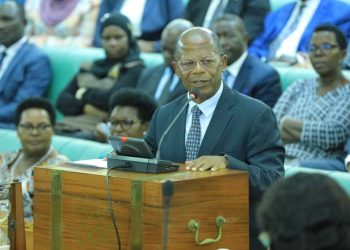A recent report from the Inspectorate of Government has revealed that Uganda’s education sector suffered a loss of Shs1.9 trillion due to corruption and teacher absenteeism between January and June of 2022.
According to the biannual performance report for 2022 released by the Inspectorate, the most significant annual cost of corruption in the education sector stems from teacher absenteeism, which resulted in a Shs1.5 trillion loss in instructional time.
The report acknowledges that absenteeism is a multifaceted issue influenced by various factors.
Embezzlement of public education funds was identified as the second major conduit for corruption, with Shs244.6 billion reportedly misappropriated during the study period.
Absenteeism itself accounted for a budgetary cost of Shs180.5 billion, with bribery contributing an additional Shs39.08 billion to the issue.
Ms. Ketty Lamaro, the Permanent Secretary of the Education Ministry, acknowledged that teacher absenteeism remains a significant challenge, with many teachers and head teachers being absent due to working in multiple schools.
In an effort to address this problem, the government introduced the Teacher Effectiveness and Learner Achievement (TELA) automated system, initially using thumbprints for attendance tracking.
The system later incorporated facial recognition technology to improve tracking. However, TELA has faced technical challenges, particularly in areas with limited internet coverage.
Ms. Lamaro recommended a collaborative approach within the education sector to combat teacher absenteeism, highlighting the need for increased monitoring at all levels.
Mr. Filbert Baguma, the Secretary-General of Uganda National Teachers’ Union (Unatu), expressed concern that the situation may worsen due to salary discrepancies and economic challenges.
He emphasized the importance of addressing teacher welfare issues and causes of absenteeism.
Mr. Moses Byaruhanga, a senior presidential advisor, discussed the impact of dual careers and occupations during the Covid-19 pandemic, suggesting that private schools performed better due to increased supervision.
He supported the government’s technological approach, such as the TELA system, to combat corruption and absenteeism.
Mr. Gerald Karyeija, the dean of public administration at Uganda Management Institute, pointed out the cultural dimension of absenteeism in rural areas and recommended cultural adjustments and strengthened leadership and supervisory skills.
The Inspectorate of Government arrived at the total loss figure by monetizing the hours of education lost due to absenteeism.
On average, seven hours of teaching time per day are lost, resulting in a cost of Shs1.47 trillion annually for students in secondary and primary schools.































































